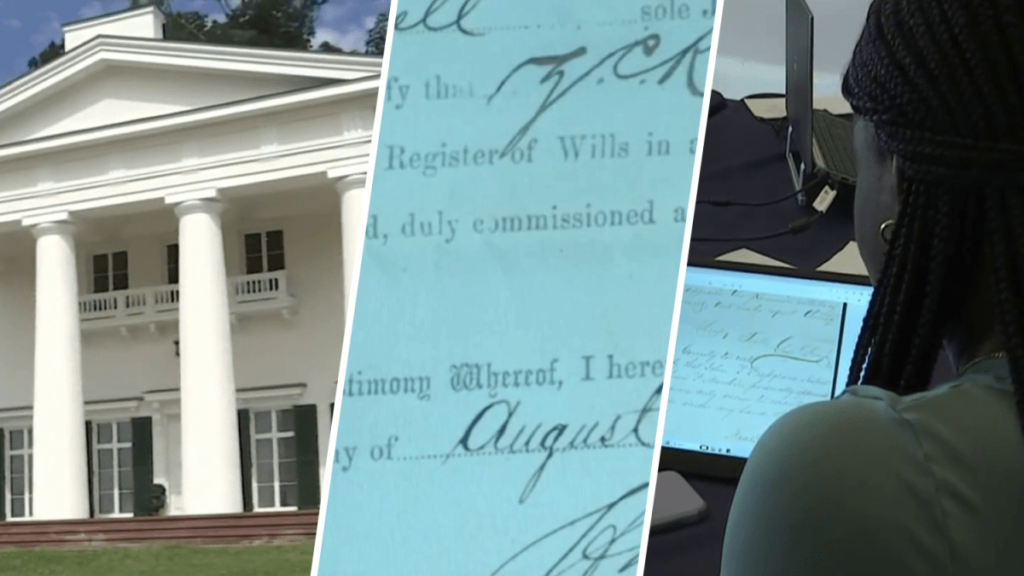A new project in Loudoun County, Virginia, will honor the lives of enslaved laborers and allow future generations to trace their ancestry.
“A lot of African-American history has been lost, and I think we really need to recognize that it’s American history that’s been lost,” said Carla Davis, who teaches African-American history at Stonebridge High School.
Leesburg’s Morven Park was once a plantation, home to 80 enslaved men, women and children, and is now home to the 246 Year Project, which aims to help people trace their ancestry while future generations learn the stories that resonate within its walls.
It’s like opening a portal to the past.
“We believe their names and life stories should be known,” said Stacey Metcalf, executive director of the Westmoreland Davis Memorial Foundation, which is working with the Loudoun County court system to dig up old property records. The documents paint a chilling picture of how people were treated like property.
“We follow these families and stories and where they’re going, how these families are being sold off and how these families are being left behind,” Metcalf said.
Students at Stonebridge High School are helping digitize the records as a final project for their African-American history class.
“It feels great to be able to give back to the community,” student Jordan Nartey said. “It makes you feel like you’re actually part of something. It’s nice.”
“Having my students see primary sources in advance and have the opportunity to decipher them has been one of the highlights of my career. I’m very excited,” said teacher Davis.
Why is it called “Project 246”? Here’s how the website explains it:
For 246 years, from 1619 to 1865, vast numbers of Africans and their descendants were held as slaves and were legally considered property. As property, their names do not appear on most standard government records such as censuses, birth registrations, and death registrations. This 246-year omission makes it difficult for surviving descendants of enslaved Africans to trace their ancestry through the many online genealogy services available today.
until now…
246 Project
The database is available online: by entering the name of an enslaved laborer, you can find a timeline of their life.


